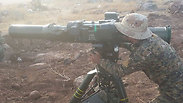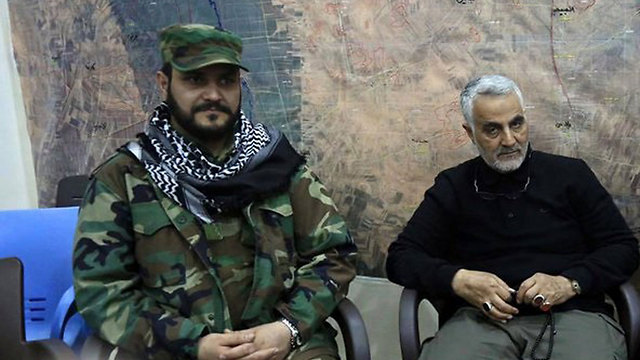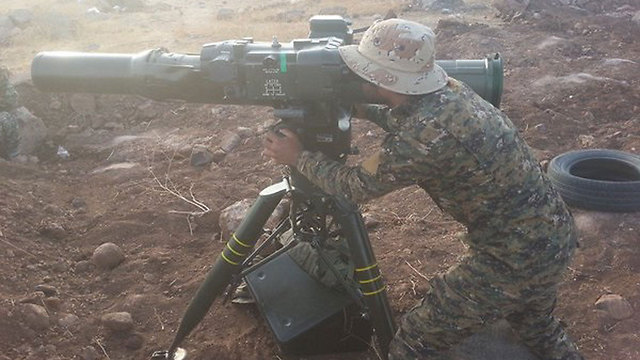
Equipped with Russian-made tanks (via the Syrian army), Iranian rockets and operating as an elite unit trained by the Islamic Republic, a brigade formed by the Iraqi Shiite militia declared that its target is to liberate the Golan. This brigade is the reason behind the message Prime Minister Benjamin Netanyahu conveyed in Russia, according to which Israel will not tolerate permanent Iranian presence in Syria.
"The declaration regarding the formation of the liberation of the Golan brigade is not only a media campaign, but the real goal of the movement," said the secretary general of the militia, Akram al-Kabi.
So who is this militia? Intelligence researcher Ronen Solomon, owner of the Intel Times blog, traced this significant branch of Iran's Revolutionary Guard.
"The militia's name first surfaced in 2013 when it deployed its divisions in Syria, in the areas of Sayyidah Zaynab of the Damascus suburbs (which is sacred to the Shiites), Idlib, Aleppo, Homs, Al-Klmon near the Lebanese border, and Iraq under the auspices of the Revolutionary Guard," Solomon explained.
"That same year, the militia released a series of videos that expressed loyalty to the commander of the Revolutionary Guard's Quds Force, Qasem Soleimani, and even adopted the resistance symbols of Hezbollah," continued Solomon.
The organization in question is an extension of the Popular Mobilization Forces in Iraq that includes several Shiite militias who are perceived as controversial due to their religious zeal.
The organization, according to Solomon's analysis, is one of the Shiite militias deployed to Syria by Iran to help Hezbollah and the Syrian army in securing the Shiite holy places, but also to conquer the strategic city of Aleppo, in addition to reinforcing Hezbollah's defense in the Al-Klmon Mountains. "All activity is coordinated with Russia, who has been providing the forces with aerial backup and assisting in transferring weapons of their production."
Solomon claimed that the Iraqi militia has an elite unit trained by Iran, which operates in similar fashion to Hezbollah's elite Radwan Force. "Iran provided the militia with multi barrel rocket launchers… and even though the rockets are not precise, they hold deadly impact, which has proven itself in Iraq against American bases and now, in pounding rebel outposts in northern Syria."
In recent months, there have been records of the Syrian militia fighters equipped with Russian T-90 tanks, which they probably received indirectly from Russia through the Syrian army, according to Solomon's assessment. He noted that "the fighting in Iraq and Syria has made them proficient in guerrilla warfare and urban warfare."
Solomon also linked between this militia and the reports concerning an attempt by the Quds Force to use an Iraqi citizen with a Norwegian citizenship against Israel from Jordan territory in July 2015. Jordan arrested the citizen, who was captured with 45 kilograms of powerful explosives.
Sheikh al-Kabi, who heads the militia, occasionally exchanges his traditional garb with a military uniform: "He wanders back and forth on the Iraq—Iran axis, Syria and Lebanon … and holds meetings with security officials working from the Iranian government, and even visits in Lebanon with Hezbollah leader Hassan Nasrallah."
In September 2015, Al-Kabi gave a speech to his fighters in Aleppo, going so far as to directly accuse Israel of attacking his organization, a claim which to this day remains unproven. Al-Kabi neglected to specify where and where Israel had allegedly attacked, but this accusation is a first of its kind.
Usually, the attacks attributed to Israel in Syria are meant to prevent arms shipments from being transferred to Hezbollah in Lebanon. However, on the backdrop of the formation of this brigade along with Netanyahu's quicksilver visit to Russia, it is quite possible that one day, Israel will find itself in conflict with this Shiite militia.


















